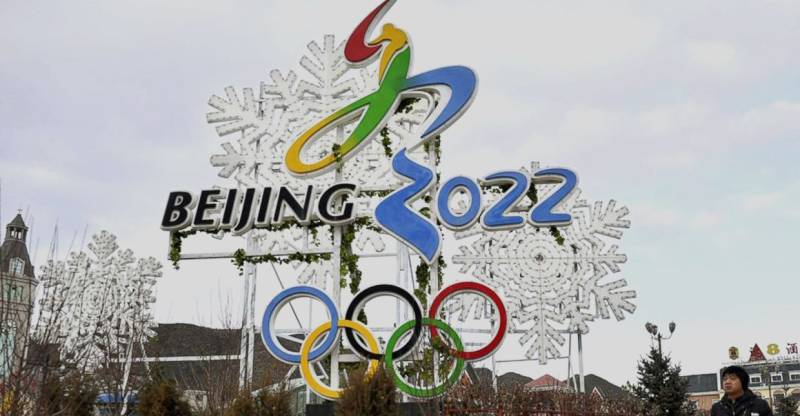Tokyo hands Olympic baton to Beijing but virus, boycott calls weigh

Stay tuned with 24 News HD Android App

The focus immediately shifts to Beijing as the curtain falls on the Tokyo Olympics, with a growing coronavirus outbreak in China and boycott calls looming large just six months from the start of the Winter Games.
The Beijing 2022 Olympics are scheduled to take place from February 4 to 20, when the Chinese capital will become the first city to host a Winter and Summer Games.
New venues have been constructed and some from Beijing 2008, including the "Bird's Nest" National Stadium, are being spruced up as China attempts to show the world its best face.
The 2022 Games will be spread over three main zones -- Beijing, Yanqing and Zhangjiakou, which is about 180 kilometres (110 miles) northwest of the capital. A high-speed train will connect the three hubs.
All competition venues were completed several months ago and the Chinese government has been keen to assert that preparations have successfully ploughed on despite the coronavirus pandemic.
But just as Beijing 2022 swings into view, China is now facing its largest virus outbreak in months, even if infection numbers are still low compared with many other countries.
Another headache for the Beijing Olympics and China's ruling Communist Party is sustained calls from activists, the Uyghur diaspora and some Western politicians for a boycott over the country's rights record, especially the fate of Muslim minorities.
China, where Covid-19 emerged towards the end of 2019, already had some of the world's strictest containment measures and is ramping them up further in the capital.
People flying into China from abroad must quarantine for between two and three weeks in a hotel, and it is unclear if the thousands of athletes, team officials, media and others coming to the Games will have to do likewise.
Tokyo model?
Bo Li, assistant professor of sports management at Miami University in Ohio, said Beijing 2022 organisers should take their cue from Tokyo in handling the virus threat.
There were concerns there would be mass infections among participants in Japan but while there have been cases, the worst fears have not materialised.
The International Olympic Committee (IOC) and local organisers insisted on testing everyone involved before and regularly during the Games, and keeping athletes away from the public.
Spectators have also been barred from most events at Tokyo 2020 -- it is unclear whether Beijing 2022 will follow suit.
"Overall the strategy that has been used by Tokyo has been pretty successful and I think Beijing will duplicate something very similar," said Bo Li, adding that he was "curious" about what China would do with its current strict quarantine procedures.
"I don't think it’s realistic to expect the athletes to arrive in Beijing (at least) two weeks in advance and to be quarantined," he said.
"From the financial point of view, who would pay the bill? The organising committee? The IOC?
"The preparation of the athletes would be greatly affected, it would be unacceptable to most of them."
Unanswered questions
The United States says Beijing is carrying out a genocide against Uyghurs in the region of Xinjiang and experts estimate more than one million people have been incarcerated in detention camps.
Beijing denies genocide and has described the camps as vocational training centres.
Yaqiu Wang, a New-York based China researcher for Human Rights Watch, stopped short of calling for a full boycott: "Athletes have been preparing their whole lives to have this moment, so taking that moment away is wrong.
"Athletes can still go, but sponsors, international dignitaries, celebrities, we think they should not go to lend legitimacy to the Chinese government hosting the Games."
Mark Dreyer, a China sports analyst, said that many questions remain unanswered about the Winter Games, even with fewer than 200 days to go.
"Ticketing plans haven't been released. And do we know about spectators? It's looking likely there are not going be international spectators allowed, but what about domestic spectators?" asked Beijing-based Dreyer, who runs the China Sports Insider website.
"All this sort of stuff, normally it takes years to plan and there are still test events supposedly happening between now and the Games.
"Will those happen? Will they provide us any additional information in terms of how China plans to run the real thing?"
